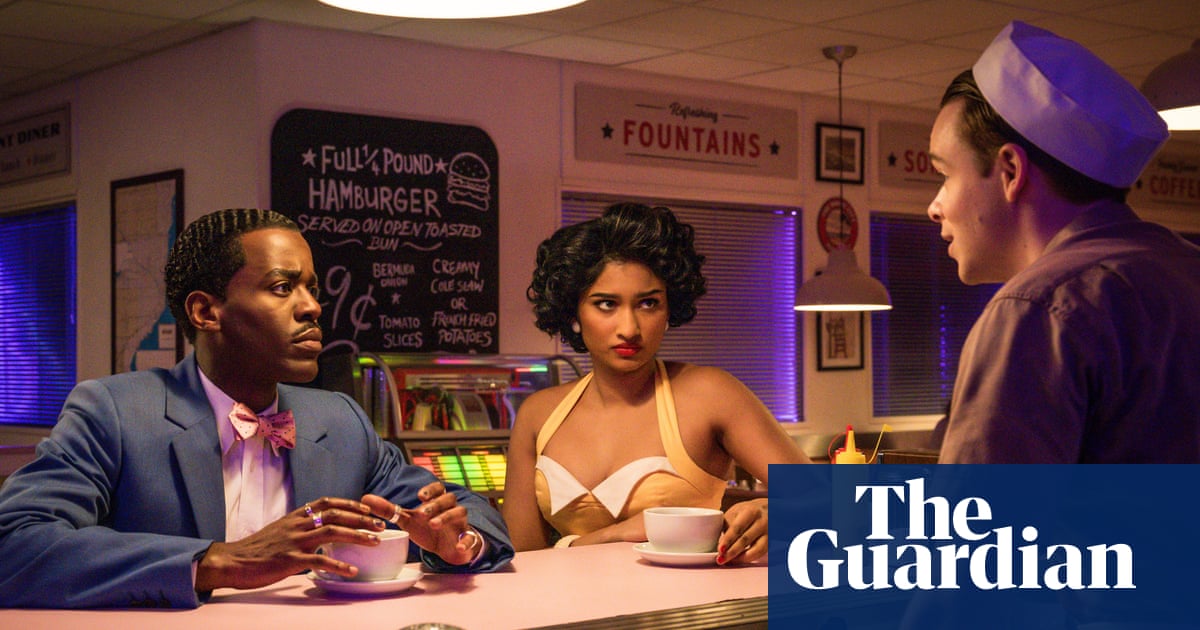Many remakes are utterly pointless, whether they’re disregarding what made a movie good or interesting in the first place, or paying such slavish homage that a second version becomes redundant, rather than a worthy variation. If nothing else, the contemporary reconfiguration of The Wedding Banquet passes the remake test handily. Ang Lee’s original 1993 film is about a bisexual Taiwanese immigrant, living happily with his male partner, who hastily arranges a lavish (and, emotionally speaking, fake) wedding to a woman to please his visiting parents; director/co-writer Andrew Ahn, who shares screenplay credit with original co-writer James Schamus, relocates the story from 1993 Manhattan to 2025 Seattle, and contends with a whole different set of social rules and actual laws in the process.
Ahn is so acutely aware of how times have changed, in fact, that he seems reluctant to mine the new situation for comedy. Lee (Lily Gladstone) and Angela (Kelly Marie Tran) are unmarried but committed lesbians about to go through their second expensive round of IVF. They can afford to live in the Seattle area largely because Lee has inherited her family home, where she yearns to start a family of her own; the couple also rents out a converted garage to Angela’s longtime bestie Chris (Bowen Yang) and his boyfriend Min (Han Gi-chan). Min, who comes from money, has been in the US on a student visa that’s about to expire, and his grandparents want him to return to Korea and help run the family business. A green card is just a marriage proposal away, but commitment-resistant Chris is hesitant to marry, especially for convenience. So Min makes a counter-proposal: he’ll secure some of his family money to pay for Lee and Angela’s IVF, and in exchange, Min will marry Angela, for a green card and for familial show.
The show becomes a lot showier when Min’s grandmother Ja-Young (Youn Yuh-jung, who won an Oscar for Minari a few years back) announces a surprise visit. A courthouse wedding will no longer do – and nor, it seems, will the hints that this Wedding Banquet will involve some degree of Birdcage-like deception farce. Ahn moves so far away from the mechanics of the 1993 film that the new Banquet takes ages just to waffle its way into its halfhearted scheme, which it then treats with an almost funereal sense of trepidation. (This, despite the fact that Ja-Young, no dummy, understands that the wedding ceremony will be for show, to placate Min’s unseen grandfather.)
There are a wealth of serious relationship problems here: Chris, who has been indefinitely extending his grad-school years via an unfinished dissertation, shows similar reluctance to take the next step with Min. Angela, meanwhile, feels more ambivalent about motherhood than her partner, because of a fraught relationship with her overbearing mother May (Joan Chen). (In a fun twist on the intolerant-parent trope, May can’t stop showing off how accepting she is of her daughter’s sexuality, as Angela cringes and attempts to avoid the spotlight.) Angela and Chris are described as codependent, even toxically so, but most of the time the movie skips over the funny side of those relationships – the snark, the shorthand, the almost fetishistic acceptance of personal quirks – so it can get to their complaints faster. The exception is a bit of unexpected bedroom farce that finally gives Yang, one of the funniest current Saturday Night Live cast members, something comedic to play. Naturally, it lasts about three minutes and quickly returns to the kind of guilt-ridden world-weariness you’d expect to see from a drama about grief.
Look, there’s nothing wrong with Ahn taking his material seriously. That served him well in the beautifully wrought drama Driveways, about a kid who befriends his elderly neighbor, with masterly work from Hong Chau and, shortly before his death, Brian Dennehy. (It’s currently streaming on Tubi; check it out!) Even in his Wedding Banquet, there are certainly points where the lack of hacky shtick imposing itself on the characters counts as a relief, and even a few scenes, particularly a wordless one between Gladstone and Tran, where the performers bring true depth of feeling to potential contrivances. Yet those moments would probably land better punctuating a funny movie, instead of one that spends long passages actively distancing itself from comedy. Ahn largely shoots it like an indie drama that’s been cajoled into including some wan reaction shots, which has a domino effect: underdeveloped set-ups muffle the few punchlines and payoffs, which in turn make almost everyone involved seem vaguely depressed. (May, for example, never seems quite as monstrous as Angela makes her sound, which is more confusing than funny.) Han, making his film debut, is the only member of the central quartet paying much attention to comic timing.
Tran and Gladstone keep the movie watchable, mixing prickliness and warmth in a situation that’s more common than movies often acknowledge: a partnership where one person is far more invested in parenthood than another. They’re stuck, however, in a movie that can’t quite commit to either incisive relationship drama or comedy of manners. Maybe that’s why Yang gets top billing over Oscar nominee Gladstone: his dithering Chris is the movie’s semi-annoying soul.
-
The Wedding Banquet is out in US cinemas on 18 April and in the UK on 9 May

.png) 2 days ago
12
2 days ago
12













































